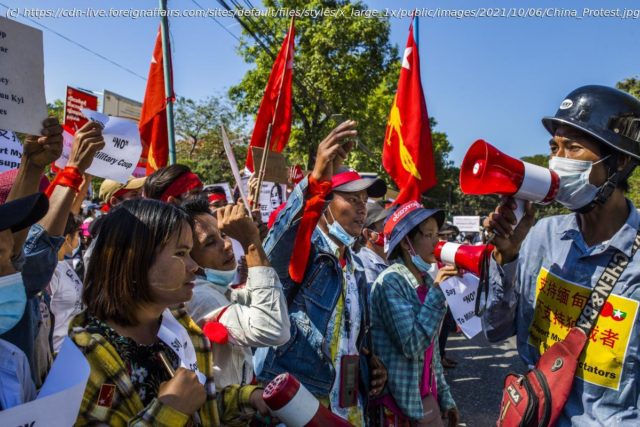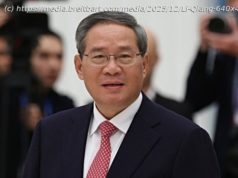Negative views of China are near record highs across the world, yet Beijing shows no sign of shifting course.
In early 2017, China appeared to be on a roll. Its economy was beating estimates. President Xi Jinping was implementing the country’s Belt and Road infrastructure initiative and was on the cusp of opening China’s first overseas military base in Djibouti. Most important, Xi seemed poised to take advantage of President Donald Trump’s determination to pick fights with U.S. allies and international institutions. In a speech in Davos in January of that year, Xi even compared protectionism with “locking oneself in a dark room.” Nearly five years on, Beijing is facing its biggest international backlash in decades. Negative views of China are near record highs across the developed world, according to a Pew Research Center survey from June, which showed that at least three-quarters of respondents in Australia, Japan, South Korea, Sweden, and the United States now hold broadly negative views of the country. The European Union, which Beijing worked to court during the Trump era, has officially branded China a “ systemic rival, ” and NATO leaders have begun to coordinate a common response to Beijing. On China’s doorstep, the leaders of Australia, India, Japan, and the United States have revitalized the “ Quad ” grouping of nations in response to concerns over Beijing’s intentions. And most recently, the United States and the United Kingdom agreed to share sensitive nuclear secrets with Australia to help it counter China’s naval ambitions in the Pacific. Yet Beijing shows no sign of shifting course. Unlike previous eras of backlash against China, such as the one that followed the Tiananmen Square massacre in 1989, this one has not prompted a recalibration in Beijing. For now, China’s leaders appear to have decided that their newfound national strength, combined with the general malaise of the West, means that the rest of the world will have to adapt to Beijing’s preferences. In recent years, China has faced mounting international criticism of everything from its apparent detention of more than one million Muslim Uyghurs in “reeducation” camps to its sweeping crackdown in Hong Kong, its controversial industrial policies, and its role in the outbreak of the COVID-19 pandemic. But increasingly, it is China’s diplomats who are doing the most damage to the country’s reputation. Popularly known as “Wolf Warriors,” after a series of blockbuster movies that depicted Chinese heroes vanquishing foreign foes, they have picked fights everywhere from Fiji to Venezuela. In March 2020, the Foreign Ministry spokesperson Zhao Lijian outraged U.S. officials when he claimed that the COVID-19 pandemic began only after American athletes had brought the virus to Wuhan. Last November, Zhao tweeted an illustration of an Australian soldier holding a knife to the throat of an Afghan child, prompting Australian Prime Minister Scott Morrison to demand an apology. And in September, China’s new ambassador to the United Kingdom, Zheng Zeguang, was banned from the British Parliament over Chinese sanctions against British lawmakers. China ’s foreign policy elites have noticed the problem. As early as 2018, Deng Pufang, the son of former paramount leader Deng Xiaoping, warned that China should “know its place” and “keep a sober mind” in its foreign policy. In May 2020, Reuters reported that the China Institutes of Contemporary International Relations—a think tank affiliated with China’s primary intelligence agency—had warned the country’s leadership that anti-China sentiment was at its highest since the 1989 Tiananmen Square crackdown. And in September 2020, Yuan Nansheng, China’s former consul general in San Francisco, warned against “ extreme nationalism ” in Chinese foreign policy.






